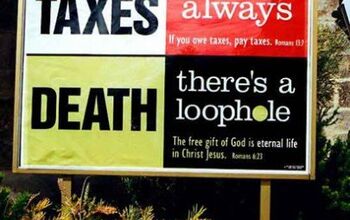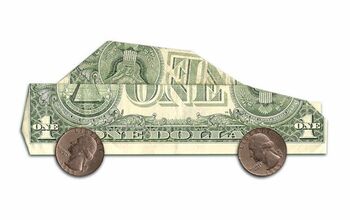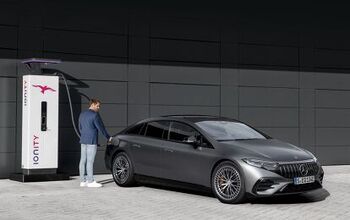Hammer Time: Tax Season
When should you not buy a used car? Try right now. From mid-February thru early-June, the auto industry goes through an event called tax season. Folks receive their refund checks from the IRS, which in turn creates a nice little bubble of activity in the used car industry. Which is a good thing. Except that bubbles always have nasty repercussions down the road.
Used car prices are now soaring into the heavens of ‘stupid money’ at the dealer auctions.
For example, these were a few of the returns at a recent Carmax sale.
2001 Honda Civic, 170k, 5-speed, LX: $4100
2002 Ford Escape, 214k, Cloth, XLT, $4000
2002 Buick Rendevouz CX, 129k, Leather $4100
1997 Honda CR-V, 207k Cloth, 4WD $3700
2000 Ford Expedition Eddie Bauer, Leather, 2WD, 156k $5100
1998 Mercury Sable GS, Auto, Cloth, 93k, $3500
Compared to only three months ago, I would estimate these cars sold between $700 and $1500 higher than what was then the market price. The difference is customers, and perhaps a bit of faith. A lot of the buy-here pay here- lots are pushing for a $1000+ down payment on these types of vehicles, and during tax season a lot of folks have the means to pay that type of money.
Even with a $70 to $85 weekly payment, these used cars will usually take anywhere between six to nine months to break even for the dealer. Up to a few years ago, the break-even point would have come several months beforehand and it was fairly easy to sell the note to a finance company free and clear. Not anymore. If you want to have a decent return you have to ‘tote the note’ and consider putting a GPS tracker on it.
The bad news comes for the cash buyer. Dealerships that used to be cash only are now migrating to the buy-here pay-here model, which means that price competition at the wholesale level is stronger than ever. Used car prices are now among the highest in the past decade in the United States. The supply of good cars has gone down considerably because consumers (who read Hammer Time) are keeping their vehicles longer.
New car dealerships are also retailing most of their trade-in’s instead of bringing them to the sales. Even the ones with salvage histories and prior owners who considered oil changes ‘inconvenient’, are given the retail ready thumbs up by the used car managers . That means a lot of dealers without a strong trade-in business are picking up a lot of bad vehicles at the auctions and trying to turn it over to you as quickly as possible.
What about the prior owner? A lot of the resourceful ones are getting their vehicles repaired instead of traded-in. If a 10 year old car blows an engine, installing a new one for $1300 seems to be a lot more reasonable than financing any of the vehicles mentioned above for the $5500 to $7000 range. Other folks who want less hassle are opting for leases, which compete directly with the buy-here pay-here dealerships during this time of year for the monthly payment.
You can get a good deal at this time. But it’s not so easy. A friend of mine recently had to travel two states north to find a 2003 Honda Element that fit his bill. Even with 170k miles, he paid nearly 8 grand for it. I have found decent deals at this time too. But usually it’s because I like older cars and keep up with enthusiast sites that focus on cheap fixes for seemingly major problems.
Knowledge is always the best weapon in the marketplace. Unfortunately this is the time of year when a lot of dealers come to the auctions with their sharpened knives of greed and avarice. Fine with me. This is the time of year I also sell my bad cars and let these enlightened souls carve up those turkeys.
More by Steven Lang
Latest Car Reviews
Read moreLatest Product Reviews
Read moreRecent Comments
- Jeff Self driving cars are not ready for prime time.
- Lichtronamo Watch as the non-us based automakers shift more production to Mexico in the future.
- 28-Cars-Later " Electrek recently dug around in Tesla’s online parts catalog and found that the windshield costs a whopping $1,900 to replace.To be fair, that’s around what a Mercedes S-Class or Rivian windshield costs, but the Tesla’s glass is unique because of its shape. It’s also worth noting that most insurance plans have glass replacement options that can make the repair a low- or zero-cost issue. "Now I understand why my insurance is so high despite no claims for years and about 7,500 annual miles between three cars.
- AMcA My theory is that that when the Big 3 gave away the store to the UAW in the last contract, there was a side deal in which the UAW promised to go after the non-organized transplant plants. Even the UAW understands that if the wage differential gets too high it's gonna kill the golden goose.
- MKizzy Why else does range matter? Because in the EV advocate's dream scenario of a post-ICE future, the average multi-car household will find itself with more EVs in their garages and driveways than places to plug them in or the capacity to charge then all at once without significant electrical upgrades. Unless each vehicle has enough range to allow for multiple days without plugging in, fighting over charging access in multi-EV households will be right up there with finances for causes of domestic strife.


































Comments
Join the conversation
I discussed this article over breakfast with my wife this morning, telling her how I sent this article to my son who is nearing the market for a different car and how he should wait as Steve advises until after tax season to buy. She then said: "...and when did we buy all three of our cars?" I replied after a dramatic pause: "In May!" Duh! 2002 CR-V - May, 2002; 2004 Impala - May, 2004; 2007 MX5 - May, 2010! 'Nuff said! I'll go sit in a corner and sob awhile, now...
Stopped at a dealer here in Florida this past weekend to look at a 2007 VW New Beetle with 55k on it, no unusual equipment but has leather. They have it listed at “an internet price” for $10900 and offer me $5000 for my 2007 PT Cruiser Touring with 72000 miles. I start talking to the guy about my trade in value and a lower price on the Beetle. His answer? “Not this time of year, if you’re not interested I’m sure I’ll have another buyer soon”. Well, this I'm no buyer with that attitude. Interestingly, I do some asking around and find out the Beetle has been on the lot for close to 45 days to boot.